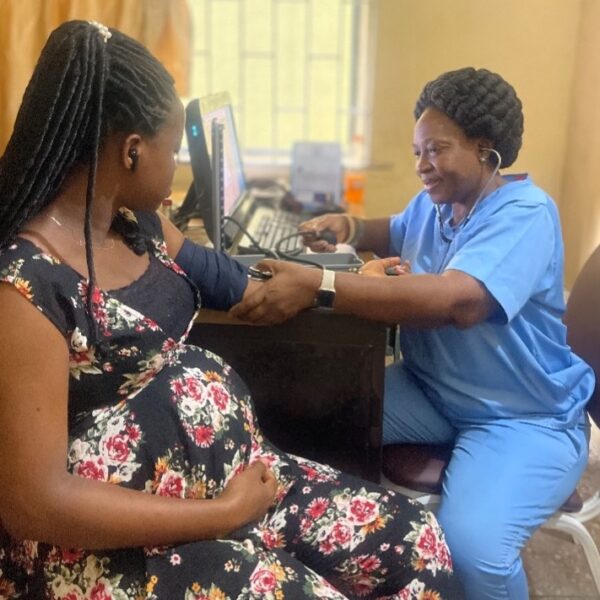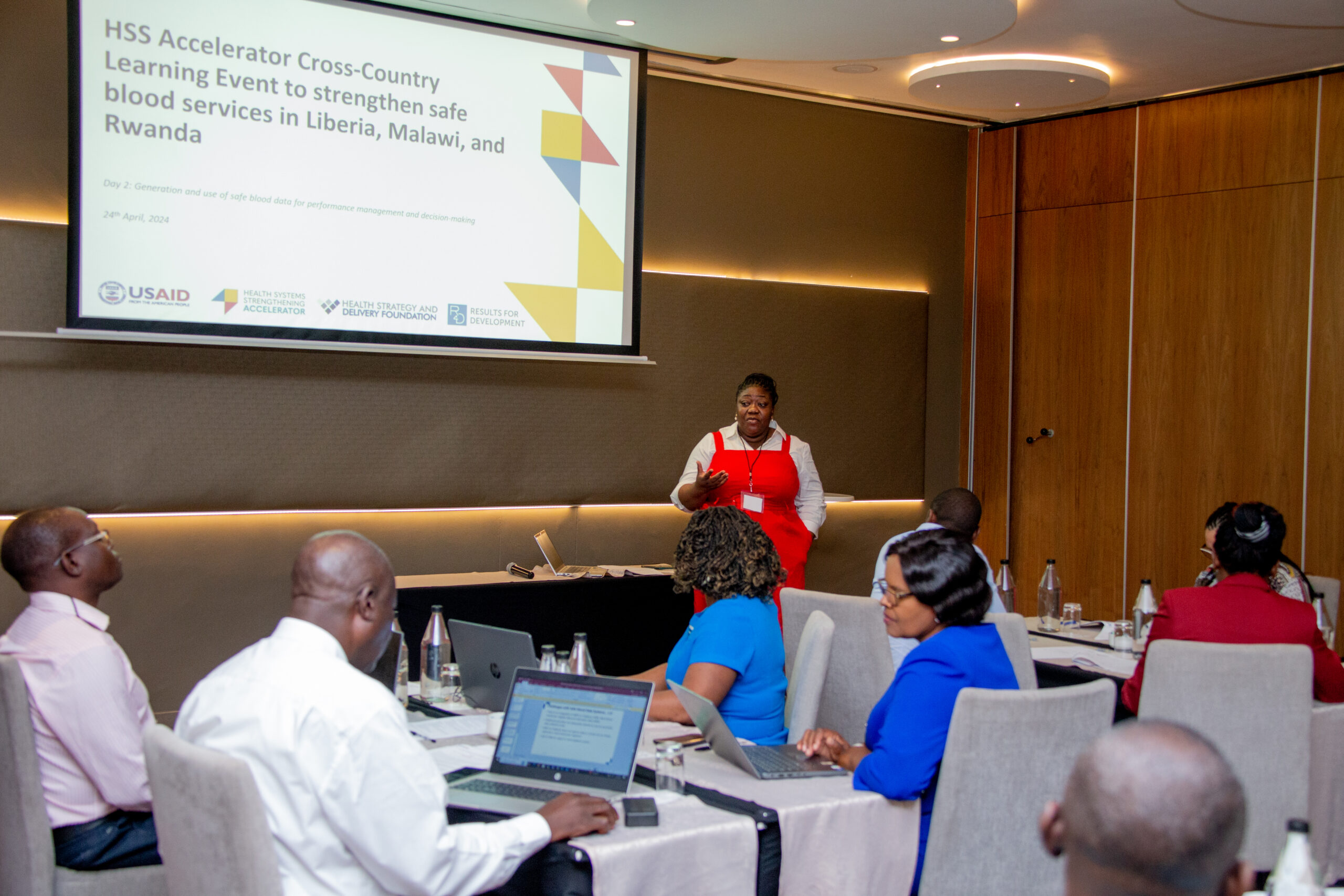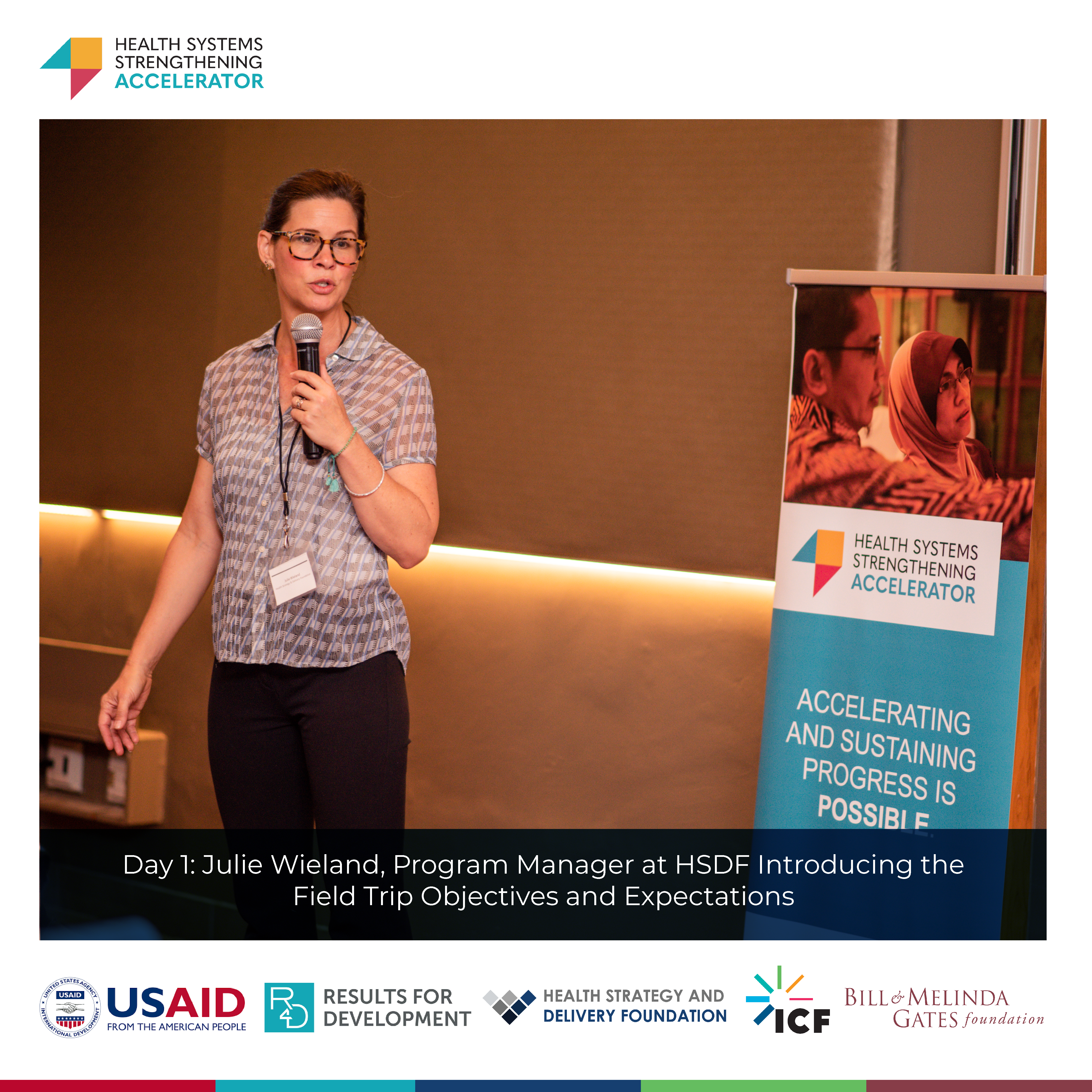Showcasing Impact: Project Aisha Supports Improvement of Maternal Care at Matador Medicare Services, Lagos

In a quest to raise the standard of maternal care, Matador Medicare recently embarked on a transformative journey with the adoption of quality Antenatal Care (ANC) checklist, which is one of the innovative quality initiatives being implemented by Project Aisha across selected facilities in Lagos and Kaduna states. This checklist seeks to guide care providers in providing comprehensive care to pregnant women, enabling prompt identification of pregnancy-related complications to enhance maternal and newborn outcomes.
Located within Ifako Ijaiye LGA in Lagos state, Matador Medicare Services is one of the private hospitals committed to improving maternal health as part of Project Aisha’s Maternal Health Quality Improvement (QI) Collaborative in Lagos State. During a peer-to-peer learning session held in September 2023, the hospital’s QI team identified several gaps in their ANC processes, particularly the lack of standardized care delivery for pregnant women. For example, urinalysis was sometimes omitted due to lack of financial resources among pregnant women and non-capturing of the Body Mass Index (BMI) of pregnant women due to poor knowledge among care providers.
To address these gaps, the quality ANC checklist was introduced as a change idea. Over a three-month pilot period, significant enhancements were observed in the delivery of quality ANC. A compelling example is the case of Mrs. S, an expectant mother whose care was guided by the quality ANC checklist from her first visit to the hospital until delivery.
Following the checklist meticulously, Mrs. S received thorough medical and obstetric history assessments, along with all necessary physical examinations and laboratory investigations. Crucially, deranged values of protein in urine were detected toward the end of her pregnancy, signaling potential complications. It is important to note that prior to the adoption of the checklist, this could have gone unnoticed, as the test was usually conducted during the first ANC only and the blood pressure was not markedly elevated. But thanks to the checklist’s recurring tests for protein and sugar at each ANC visit, this issue was identified early, allowing prompt intervention to safeguard Mrs. S and her unborn child. Ultimately, Mrs. S gave birth to a healthy baby boy via scheduled caesarean section, with both mother and baby thriving!
This real-life example underscores the quality ANC checklist’s pivotal role in enhancing quality of care for pregnant women by swiftly detecting maternal complications. Furthermore, it highlights the importance of evidence-based tools in standardizing care delivery.
Moving forward, Project Aisha will continue to support both public and private facilities with tailored, innovative solutions to improve health outcomes for mothers and their unborn babies.
Written by Kristin Nmazua
Recent News
-
Empowering Nations: Safeguarding Blood, Inspiring Change
30 April 2024
Grants and Business Development Specialist
We are seeking a highly motivated and experienced Grants and Business Development Specialist to join our organization. The successful candidate will be responsible for identifying funding opportunities, developing grant proposals, and fostering partnerships with potential donors and stakeholders (regional and global). This role plays a vital part in securing funds and resources to support our organization’s mission and projects.
Apply NowPublic Health Consultant, Guinea
The consultant (working with the Accelerator team) will collect results from the tool, organize a meeting with stakeholders to discuss results from the tool, and produce a report on key findings and recommendations from the tool to be shared publicly.
Apply NowPublic Health Associate, Senegal
We are currently in search of an experienced Public Health professional in Senegal to work on the anticipated Nutrition Capacity Development and Financing Platform and provide technical assistance to elevate nutrition financing and strengthen local capacity to support these efforts. The Associate must be bilingual (English and French).
Apply Now


